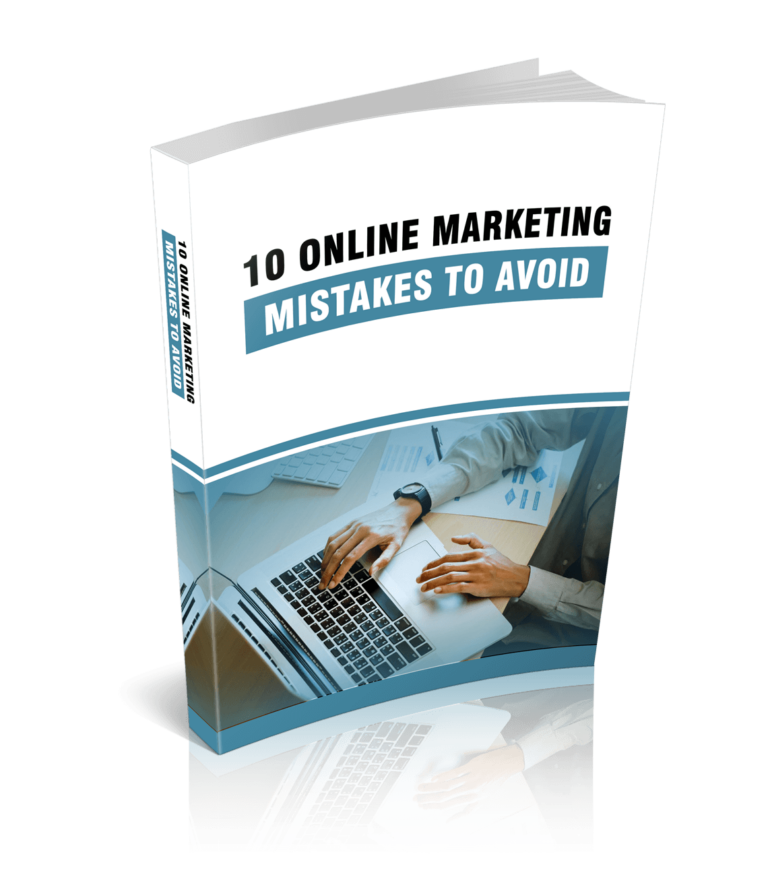The pandemic has forced many people to rethink their careers. For some, that means starting their own businesses.
While the economy is still struggling, there are opportunities for those with the drive and entrepreneurial spirit to start a business. And, with the right niche, your business can be successful this year.
The most important thing to remember when starting a business is to choose a niche you’re passionate about. Consider your skills, interests, and experience when choosing a niche. Once you’ve chosen a niche, research your competition and create a unique selling proposition (USP) to make your business stand out.
SUBSCRIBE TO INCOME PATROL
Get updates on the latest posts and more from Income Patrol straight to your inbox.
When starting a business, it’s also important to have a solid business plan. This will help you map out your goals, marketing strategies, and financial projections. Once you have a business plan in place, it’s time to start marketing your business.
There are many ways to market your business, but some of the most effective include content marketing, social media marketing, and search engine optimization (SEO). By using these marketing strategies, you can reach your target audience and generate leads for your business.
If you’re ready to start a business this year, remember to choose a niche you’re passionate about, research your competition, and create a solid marketing plan.
1. Recycling Business.
As the world becomes more and more developed, the amount of waste we produce is increasing at an alarming rate. According to the World Bank, the amount of municipal solid waste (MSW) produced globally is expected to increase from 1.3 billion tonnes in 2010 to 2.2 billion tonnes by 2025.
With landfill space becoming increasingly scarce and the environmental impacts of waste becoming more evident, recycling is becoming a more attractive option for businesses and households.
Recycling businesses collect, process and sell recycled materials to manufacturing and other businesses that use them to create new products.
There are many different types of recycling businesses, from small, local operations to large, multinational companies. The most common types of recycling businesses include:
• Paper recycling businesses collect and process paper products to be sold to paper mills.
• Metal recycling businesses collect and process metal products to be sold to metal foundries.
• Plastic recycling businesses collect and process plastic products to be sold to plastic manufacturers.
• Glass recycling businesses collect and process glass products to be sold to glass manufacturers.
Successful recycling businesses typically have a well-developed network of suppliers and customers and use sophisticated equipment and processes to Sort, clean and sell their products.
There are many opportunities for businesses to get involved in the recycling industry, from collecting and processing materials to selling recycled products.
2. Solar Panel Installation Business.
According to a report by the National Renewable Energy Laboratory (NREL), the cost of installing solar panels has fallen by more than 70% since 2010. And, with the average cost of installing a solar panel system now sitting at around $18,000, there’s never been a better time to enter the solar panel installation business.
If you’re thinking of starting a solar panel installation business, then there are a few things you need to know. We’ll take you through the key steps involved in setting up a solar panel installation business, from researching the market to finding the right suppliers.
- Research the market
Before you start a solar panel installation business, it’s important to research the market. This will help you understand the opportunity that exists for your business, as well as the competition you’ll be up against.
It’s also worth considering the long-term prospects for the solar panel installation industry. With the cost of solar panels falling and the need for renewable energy increasing, the solar panel installation market is expected to grow significantly in the coming years.
- Find the right suppliers
As a solar panel installation business, you’ll need to find reliable suppliers of solar panels and other equipment. This is important, as you’ll need to be sure that you can source high-quality products at competitive prices.
There are a number of online directories that can help you find solar panel suppliers, such as the Solar Energy Industries Association (SEIA) and the Renewable Energy Buyers Alliance (REBA).
- Get certified
In order to install solar panels, you’ll need to be certified by the North American Board of Certified Energy Practitioners (NABCEP). This certification is important, as it shows that you have the knowledge and skills necessary to install solar panels safely and effectively.
To become certified, you’ll need to pass an exam and have at least two years of experience in the solar industry. You can find more information about the certification process on the NABCEP website.
- Get insured
As with any business, it’s important to have the right insurance in place. This will protect you and your business in the event of an accident or damage to property.
When you’re shopping for insurance, be sure to ask about coverage for solar panel installation. This type of coverage is often excluded from standard business insurance policies, so you’ll need to make sure that you have the right policy in place.
- Market your business
Once you’ve set up your solar panel installation business, you’ll need to market it to potential customers. There are a number of ways to do this, including online marketing, print advertising, and word-of-mouth.
It’s also important to consider how you’ll stand out from the competition. With the solar panel installation market growing, you’ll need to find a way to differentiate your business. This could involve offering competitive pricing, unique financing options, or superior customer service.
3. Electric Vehicle Charging Station Business.
As the world moves towards a more sustainable future, electric vehicles (EVs) are becoming increasingly popular. With this shift comes a need for more EV charging stations. Businesses that provide EV charging stations can help meet this demand while also generating income.
There are a few things to consider when starting an EV charging station business. First, you will need to obtain the necessary permits and licenses. Next, you will need to purchase or lease EV charging equipment. Finally, you will need to develop a marketing strategy to attract customers.
With the right planning and execution, an EV charging station business can be a profitable and rewarding venture.
4. LED Lighting Business.
LED light bulbs are becoming more popular as consumers become more energy conscious. Many businesses are beginning to switch to LED lighting as well, in order to save on energy costs. There are many different types and styles of LED lights available on the market, so businesses have a lot of options to choose from.
LED lights are more energy efficient than traditional incandescent light bulbs, and they last much longer. This means that businesses can save money on energy costs and replacement bulbs. LED lights are also much cooler than incandescent bulbs, so they can help to reduce air conditioning costs in businesses as well.
There are a few things to keep in mind when choosing LED lights for a business. It is important to choose the right type of bulb for the application. LED lights are available in different color temperatures, so it is important to choose a bulb that will provide the right type of light for the space. It is also important to make sure that the LED lights are compatible with the existing lighting fixtures in the space.
Once you have chosen the right type of LED light for your business, you will need to install them properly. Many LED lights come with easy-to-install kits that make it simple to replace existing light bulbs. It is important to follow the instructions carefully, in order to avoid damaging the LED lights or the fixtures.
Once the LED lights are installed, you will need to maintain them properly. LED lights do not require a lot of maintenance, but it is important to keep them clean and free of dust and debris. You should also check the bulbs periodically to make sure that they are still working properly.
5. Home Energy Audit Business.
Home energy audit businesses are on the rise as home and business owners alike are looking for ways to save money on their energy bills. A home energy audit is an inspection and assessment of a home’s energy use and potential for energy savings. Home energy audit businesses offer a variety of services, from simple energy-saving tips to comprehensive energy audits.
Most home energy audit businesses start with a basic energy assessment, which includes a visual inspection of the home and an analysis of the home’s energy use. The energy assessment will identify areas where the home is wasting energy and recommend ways to improve energy efficiency. A comprehensive energy audit will also include a detailed analysis of the home’s heating and cooling systems, as well as an evaluation of the home’s insulation and air sealing.
After the energy assessment is complete, the home energy audit business will provide a report that outlines the findings and recommendations. The report will also include estimated energy savings and a cost-benefit analysis of the recommended improvements. Home energy audit businesses can also provide guidance on implementing the recommended energy-saving measures.
Home energy audit businesses are typically small businesses, with one or two employees. Some home energy audit businesses are affiliated with larger home energy companies, while others are independent. Home energy audit businesses typically serve homeowners in a specific geographic area.
6. Solar Energy Consultant Business.
As a solar energy consultant, you will be responsible for providing advice and guidance to clients on how to make the most of solar energy in their homes or businesses. This will involve assessing the client’s needs and providing tailored advice on the best way to utilise solar energy. You will need to keep up to date with developments in the solar energy industry in order to provide the most up-to-date advice to your clients.
The role of a solar energy consultant can be both challenging and rewarding. You will be helping clients to save money on their energy bills, as well as reducing their carbon footprint. In addition, you will be playing a role in the fight against climate change.
There are no specific qualifications required to become a solar energy consultant, but a background in engineering, renewable energy or sustainability would be an advantage. If you don’t have any formal qualifications, you may be able to get started in the role by completing an internship with a solar energy company.
7. Sustainable Construction Business.
As the world increasingly looks to sustainable methods in all industries, construction businesses are no different. In fact, sustainable construction is not only good for the environment, but it can also be good for your bottom line. Here are some tips on how to make your construction business more sustainable.
- Use sustainable materials.
There are a number of sustainable materials available for use in construction, including bamboo, recycled plastic, and even recycled tires. Using these materials can help reduce your environmental impact and can also be more cost-effective in the long run.
- Implement green design practices.
Green design practices can help you reduce waste, save energy, and use resources more efficiently. These practices can also make your construction projects more attractive to potential customers who are looking for sustainable options.
- Invest in renewable energy.
Investing in renewable energy sources, such as solar and wind power, can help you reduce your reliance on fossil fuels and can also save you money in the long run.
- Educate your employees.
Make sure your employees are aware of the importance of sustainable construction practices and how they can help the environment. Providing training and resources on sustainability can help motivate your team to make your construction business more sustainable.
- Partner with other sustainable businesses.
Partnering with other businesses that have sustainable practices in place can help you further your own sustainability goals. You can also share resources and best practices with these partners to help make your business even more sustainable.
8. Green Landscaping Business.
A green business is one that practices environmentally friendly landscaping. Green landscaping businesses focus on creating and/or maintaining landscapes that are aesthetically pleasing and sustainable. This type of business often uses organic methods and materials to achieve their goals.
There are many benefits to starting a green landscaping business. For one, you can feel good about knowing that your business is helping the environment. In addition, green businesses often save money in the long run by using less water, fertilizer, and other resources. Finally, customers who use green landscaping businesses often appreciate the extra effort and are willing to pay a bit more for these services.
If you’re thinking about starting a green landscaping business, there are a few things you should keep in mind. First, you’ll need to learn about sustainable landscaping practices. This includes understanding which plants are native to your area and how to care for them without using harmful chemicals. You’ll also need to be familiar with drought-tolerant plants and irrigation methods that use less water.
In addition to learning about sustainable landscaping, you’ll also need to create a business plan. This should include your marketing strategy, your financial goals, and a detailed description of the services you plan to offer. Once you have a business plan in place, you can start looking for customers.
There are a few marketing strategies you can use to attract customers to your green landscaping business. One option is to create a website and promote your business online. You can also distribute flyers in your local community and offer free consultations to potential customers.
Finally, you’ll need to create a pricing structure for your services. It’s important to charge enough to cover your costs and make a profit, but you don’t want to price yourself out of the market. If you’re not sure what to charge, you can always start with a lower price and increase it as your business grows.
Starting a green landscaping business is a great way to help the environment and make a profit. With a little planning and some hard work, you can be successful in this venture.
9. Local Food Delivery Business.
If you are looking to start your own food delivery business, there are a few things you need to consider. First, you need to decide what type of food you want to deliver. There are many different types of food, so you need to choose a niche. You can specialize in delivering healthy food, organic food, or even junk food.
Next, you need to choose a delivery method. You can either deliver the food yourself or use a third-party delivery service. If you choose to deliver the food yourself, you need to have a vehicle that is large enough to accommodate the food you will be delivering. You also need to have a valid driver’s license and insurance.
If you use a third-party delivery service, you will need to find a company that delivers in your area. You will also need to create an account with the company and schedule your deliveries.
Now that you have all of the logistics figured out, it’s time to start marketing your business. You need to let people know that you exist and that you can deliver the food they want. You can do this by creating a website, handing out flyers, or even starting a blog.
Operating a food delivery business can be a lot of work, but it can also be very rewarding. You get to be your own boss, set your own hours, and make a difference in your community.
10. Mobile app development business
As the market for mobile apps continues to grow, there is an opportunity for businesses to start a mobile app development company. This type of business can be profitable and provide a valuable service to clients.
There are a few things to consider when starting a mobile app development company. First, it is important to have a strong understanding of the mobile app development process. This includes knowing how to create an app, how to test it, and how to market it.
Second, it is important to have a niche. When starting a mobile app development company, it is helpful to specialize in one or two areas. This could include developing apps for a specific type of business, or for a specific platform such as iOS or Android.
Third, it is important to build a strong team. A mobile app development company will need designers, developers, and testers. It is also helpful to have someone who is experienced in marketing and business development.
Fourth, it is important to have a robust marketing strategy. This includes creating a website, developing a social media presence, and running ads.
fifth, it is important to track metrics and analyze data. This data can be used to improve the app, and to make better business decisions.
By following these tips, businesses can set themselves up for success in the mobile app development market.
Final words
Niche businesses are small businesses that focus on a specific market or industry.
Pros of Starting a Niche Business
- There is less competition.
When you start a niche business, you are automatically narrowing your field of competition. This can be a major advantage, especially when you are first starting out.
- You can become an expert in your field.
Because you are focusing on a specific market or industry, you have the opportunity to become an expert in that field. This can be a major selling point for potential customers.
- You can build a loyal customer base.
When you have a specific focus, it is easier to build a loyal customer base. These customers are more likely to keep coming back and referring others to your business.
Cons of Starting a Niche Business
- You may have trouble reaching a wider audience.
Because you are focusing on a specific market or industry, it can be difficult to reach a wider audience. This can limit your growth potential.
- You may have to adjust if the market changes.
If the market you are targeting changes or shifts, you may have to adjust your business accordingly. This can be difficult and may require you to start from scratch.
- You may have less room for error.
When you are starting a niche business, you may have less room for error. This is because you are starting with a smaller customer base and you may not have the same resources as larger businesses.
Starting a niche business can be a great way to find success as a small business owner. There are some challenges that come with it, but if you are prepared for those challenges, a niche business can be a great choice.
LIMITED-TIME OFFER!
With LIFETIME ACCESS membership ($67) you have access to ALL exclusive materials (current and upcoming) for lifetime. We create new courses, ebooks, webinars and downloads on a regular basis. This offer expires soon and will be replaced with monthly-paid subscription, so hurry up! Get access HERE!





